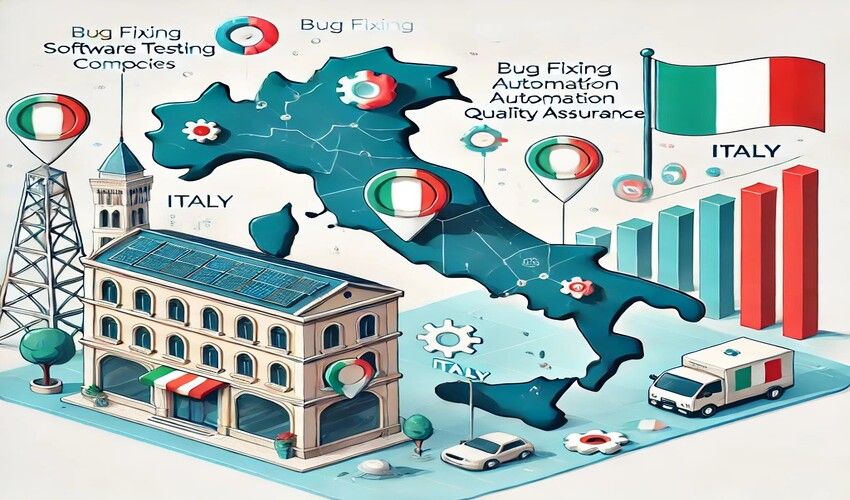Token development services thrive on strategic collaborations with blockchain developers, cybersecurity experts, legal advisors, and marketing professionals. Collaborating with skilled blockchain developers ensures the creation of secure and efficient token infrastructure. Cybersecurity professionals enhance system robustness by protecting against potential threats, while legal advisors are vital in navigating regulatory environments, ensuring adherence to compliance, and minimizing legal risks.
Moreover, partnerships with marketing professionals are essential for successful token launches, fostering community engagement, and achieving widespread adoption. In this dynamic ecosystem, collaborations with technology, legal, and marketing experts are indispensable, creating a synergistic environment for the sustained growth and success of token development services.
Understanding Token Development Services
Token development services involve creating digital assets or tokens on blockchain networks. Skilled blockchain developers design and implement secure and efficient token infrastructure. Cybersecurity experts ensure robust protection against potential threats, while legal advisors navigate regulatory complexities to ensure compliance.
Collaborating with marketing professionals is crucial for successful token launches, fostering community engagement, and achieving widespread adoption. These services play a pivotal role in the evolving blockchain ecosystem, facilitating the creation, deployment, and management of tokens that power decentralized applications, fundraising mechanisms, and innovative solutions across various industries.
How these partnerships can enhance the functionality and appeal of tokens
Partnerships can enhance the functionality and appeal of tokens in various ways by leveraging the strengths, expertise, and resources of multiple entities. Here are several ways in which partnerships contribute to the improvement of token functionality and appeal:
- Expanded Use Cases:
- Partnerships with different companies or platforms can open up new use cases for tokens by integrating them into a broader range of applications and services.
- For example, a token associated with a specific platform might gain new functionality by partnering with a company in a different industry, allowing users to utilize the token in novel ways.
- Interoperability:
- Collaborative efforts between blockchain projects and platforms can focus on achieving interoperability, allowing tokens to seamlessly function across different ecosystems.
- Interoperability enhances the appeal of tokens by providing users with flexibility and the ability to use their tokens in diverse environments.
- User Base Expansion:
- Partnerships can help tokens reach a wider audience by tapping into the existing user bases of collaborating entities.
- Integrating tokens into popular platforms or applications through partnerships can expose them to a larger and more diverse user community.
- Enhanced Security Features:
- Collaborative efforts in security research and development can lead to the implementation of enhanced security features for tokens.
- By leveraging the expertise of different organizations, partnerships can contribute to the creation of more secure and resilient token systems, increasing their appeal to users concerned about security.
- Innovative Technology Stacks:
- Partnerships allow for the integration of innovative technologies and solutions into token ecosystems.
- Collaborating with companies specializing in cutting-edge technologies can enhance the functionality of tokens, making them more advanced and appealing to tech-savvy users.
- Cross-Platform Compatibility:
- Partnerships can focus on ensuring cross-platform compatibility, enabling tokens to be easily transferred and used across different applications and services.
- This feature adds convenience for users and enhances the overall usability and attractiveness of the token.
- Incentive Programs:
- Partnerships can create joint incentive programs that reward users for engaging with tokens.
- These programs can include promotions, discounts, or exclusive access to certain features, increasing the appeal of holding and using the tokens.
- Regulatory Compliance Assurance:
- Partnerships with entities experienced in navigating regulatory landscapes can help tokens ensure compliance with relevant regulations.
- Meeting regulatory standards enhances the legitimacy of tokens, making them more appealing to users and institutional investors.
Partnerships play a crucial role in enhancing the functionality and appeal of tokens by expanding use cases, improving interoperability, reaching a broader user base, enhancing security, integrating innovative technologies, ensuring cross-platform compatibility, creating incentive programs, addressing regulatory concerns, and conducting educational initiatives. Through these collaborative efforts, tokens can evolve to meet the diverse needs and expectations of users in the rapidly changing landscape of digital assets.
How the right partnerships can amplify success and innovation in c?
Strategic partnerships amplify success and innovation in token projects by leveraging diverse expertise. Collaborating with blockchain developers ensures robust technical foundations, while alliances with cybersecurity experts enhance security. Legal partnerships navigate regulatory challenges, ensuring compliance and mitigating risks.
Marketing collaborations drive awareness, adoption, and community engagement. These synergies foster a comprehensive approach, combining technology, security, compliance, and outreach, propelling token projects toward success. The right partnerships not only enhance credibility but also bring a holistic perspective, accelerating innovation and broadening the impact of token initiatives in the dynamic landscape of decentralized technologies.
How can collaboration enhance token security?
Collaboration can significantly enhance token security through various measures that involve multiple stakeholders working together to create a more robust and resilient system. Here are some ways in which collaboration contributes to token security:
- Industry Standards and Best Practices:
- Collaborative efforts within an industry can lead to the establishment of common standards and best practices for token security.
- These standards can include encryption methods, secure transmission protocols, and guidelines for token storage and handling.
- Information Sharing:
- Collaboration allows organizations to share information about emerging threats, vulnerabilities, and attack patterns.
- Shared threat intelligence enables a more proactive approach to security, helping organizations to anticipate and mitigate potential risks before they become widespread.
- Cross-Organizational Audits and Reviews:
- Collaborative security audits and reviews involving multiple organizations can provide a comprehensive assessment of token security measures.
- Independent assessments from different perspectives can uncover vulnerabilities that might be overlooked in a single organization’s internal audit.
- Interoperability Testing:
- Collaboration facilitates interoperability testing between different systems and platforms that use tokens.
- Ensuring that tokens work seamlessly across various services and applications reduces the likelihood of implementation errors that could lead to security vulnerabilities.
- Incident Response Coordination:
- Collaborative frameworks for incident response can be established to coordinate actions in the event of a security breach involving tokens.
- Sharing incident response plans and resources helps organizations respond more effectively and minimize the impact of security incidents.
- Research and Development Collaboration:
- Collaboration in research and development initiatives can lead to the creation of more secure tokenization technologies.
- By pooling resources and expertise, organizations can innovate and stay ahead of evolving threats in the security landscape.
- Regulatory Compliance:
- Collaboration helps organizations stay informed about and compliant with relevant regulations and standards related to token security.
- Joint efforts can be made to influence and shape regulations that promote strong security practices.
Collaboration plays a crucial role in strengthening token security by fostering the development of industry standards, sharing threat intelligence, conducting thorough audits, promoting interoperability, coordinating incident response, and collectively advancing research and development efforts. Through these collaborative measures, organizations can build a more resilient and secure token ecosystem.
Conclusion
In conclusion, the flourishing of token development services hinges upon multifaceted collaborations. The synergy between blockchain developers, cybersecurity experts, legal advisors, and marketing professionals forms the backbone of success in this rapidly evolving landscape. Collaborating with adept blockchain developers ensures the creation of secure and efficient token ecosystems, while cybersecurity experts fortify resilience against potential threats. Legal advisors contribute significantly by navigating complex regulatory frameworks and mitigating legal risks.
Additionally, partnering with marketing professionals is essential for orchestrating successful token launches, fostering community engagement, and achieving widespread adoption. In essence, the seamless integration of technology, legal expertise, and effective marketing strategies through collaborative efforts is paramount for the sustained prosperity and resilience of token development services in the competitive blockchain arena.
Author Bio:
Linda, an adept crypto token writer, has a fervor for unraveling the intricacies of blockchain technology. With a profound understanding of decentralized finance and digital assets, they produce enlightening articles that clarify crypto concepts for both beginners and enthusiasts. Their work effortlessly combines technical proficiency with easily understandable explanations.
















Leave a Reply